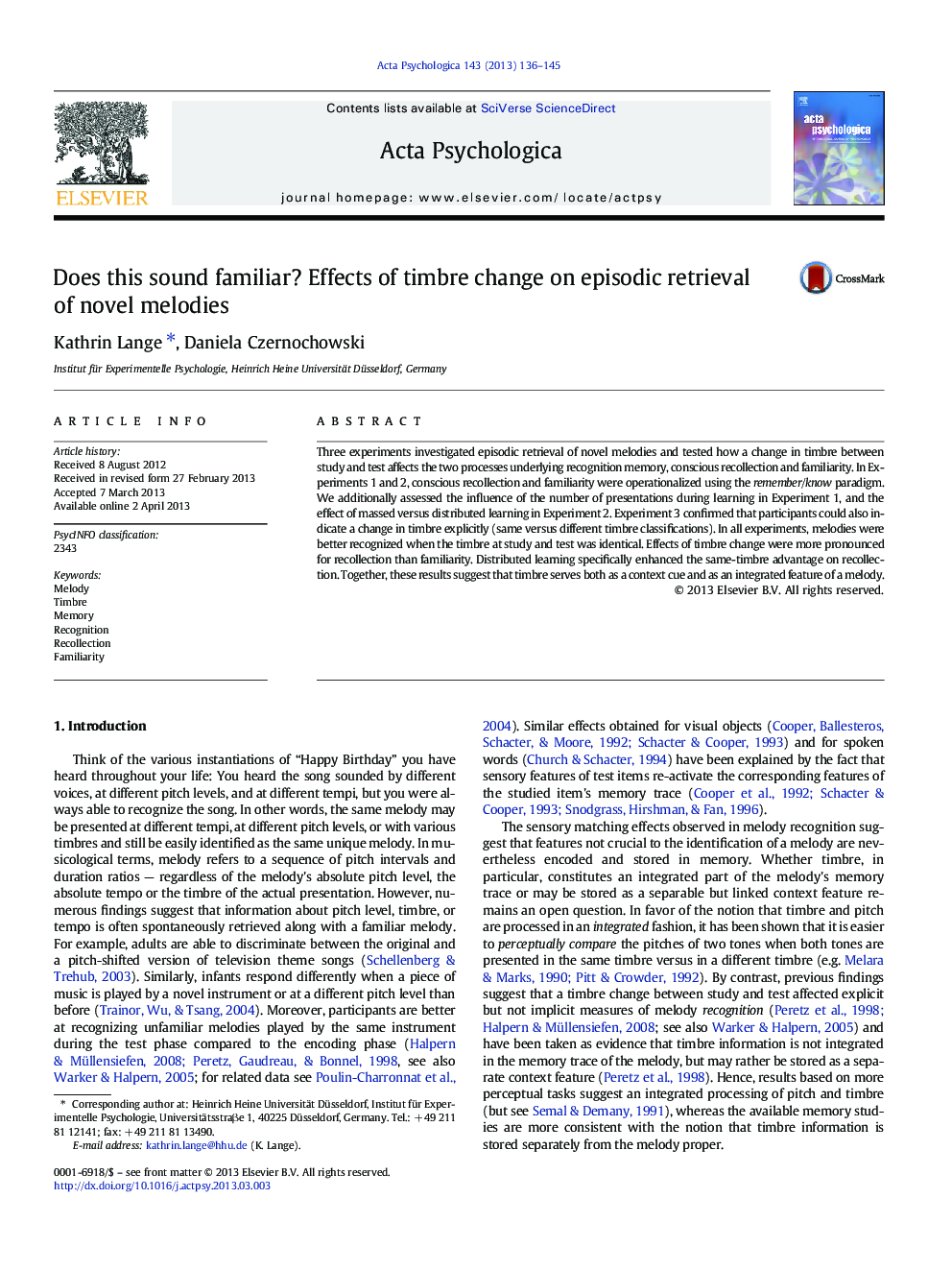| Article ID | Journal | Published Year | Pages | File Type |
|---|---|---|---|---|
| 919874 | Acta Psychologica | 2013 | 10 Pages |
•Melodies are better recognized when the timbre at study and at test is identical.•Timbre change affects both recollection and familiarity.•Effects of timbre change are larger for recollection than familiarity.•Distributed learning enhances the same-timbre advantage on recollection.•Thus, timbre serves both as a context cue and as an integrated feature of a melody.
Three experiments investigated episodic retrieval of novel melodies and tested how a change in timbre between study and test affects the two processes underlying recognition memory, conscious recollection and familiarity. In Experiments 1 and 2, conscious recollection and familiarity were operationalized using the remember/know paradigm. We additionally assessed the influence of the number of presentations during learning in Experiment 1, and the effect of massed versus distributed learning in Experiment 2. Experiment 3 confirmed that participants could also indicate a change in timbre explicitly (same versus different timbre classifications). In all experiments, melodies were better recognized when the timbre at study and test was identical. Effects of timbre change were more pronounced for recollection than familiarity. Distributed learning specifically enhanced the same-timbre advantage on recollection. Together, these results suggest that timbre serves both as a context cue and as an integrated feature of a melody.
